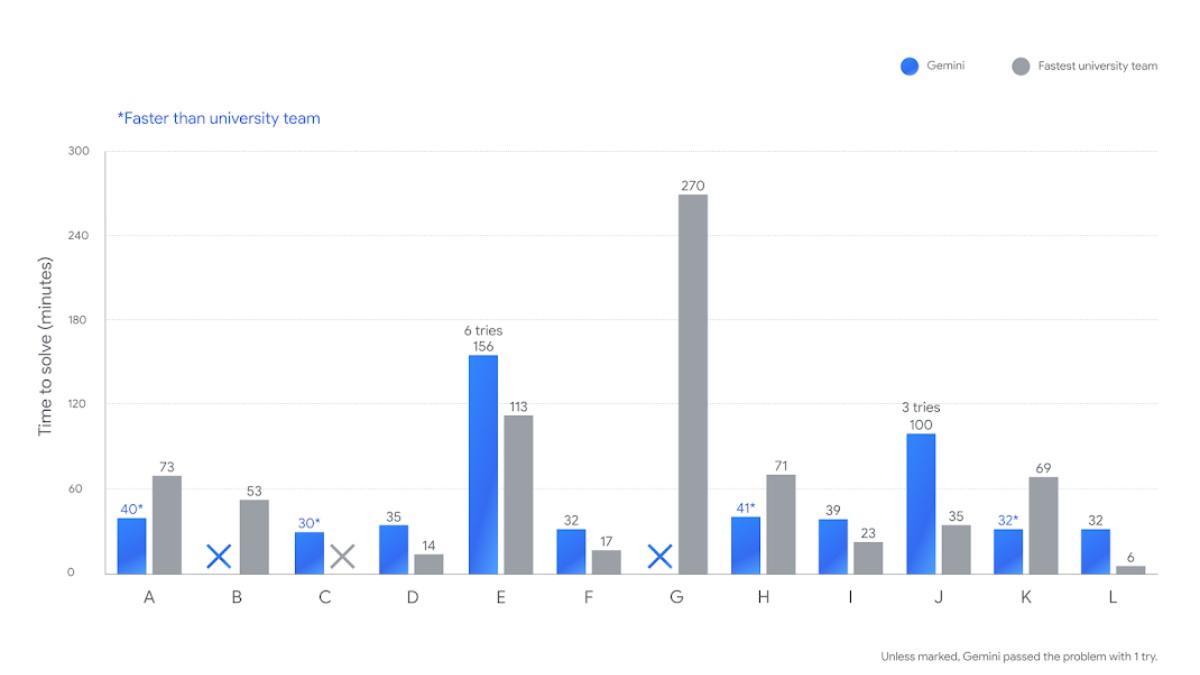Google’s Gemini 2.5 Deep Think just pulled off something out of your expectations. Yes, it won gold-medal level at the 2025 International Collegiate Programming Contest (ICPC) World Finals, the most respected coding competition in the world.
Let me tell you, this isn’t your average college quiz bowl. The ICPC is the Olympics of programming, where the best student teams from nearly 3,000 universities across 100+ countries fight it out by solving super complex problems in just a few hours. So, winning here means you are basically the best in the world at problem-solving with code.
Also, this is not the only thing, but the best part is that Gemini didn’t just keep up with the human champs; it solved problems no one else could. This win comes only two months after it also dominated the International Mathematical Olympiad (IMO).
By now, you must be wondering what exactly ICPC is and why it matters, so let me just tell you simply.
Check out:Difference Between Veo3 and Veo3 Fast: Which one Should You Use?
What is the ICPC and why does it matter?
The ICPC has been running for decades and is considered the toughest stage for college-level coders. Teams of three students get five hours to solve a dozen incredibly difficult problems. No partial credit, you either nail the problem perfectly or get nothing. Every second counts.
This year, the finals took place in Baku, Azerbaijan, on September 4. Out of 139 teams, only four earned gold medals. That’s how tough it is.
Gemini’s stunning performance
Gemini 2.5 Deep Think was tested under the same ICPC rules. It started ten minutes after the humans and still managed to solve 10 out of 12 problems in the five-hour limit.

To put it into perspective, that score would have landed it in second place overall if ranked against the human teams. Even more impressive? It solved eight problems in the first 45 minutes and cracked one problem that no university team managed to solve at all.
Check out: What is Machine Learning? Check Its Definition, Types, and Use Case Examples
This achievement isn’t just about bragging rights at a competition. Solving these kinds of problems needs more than memorization; it requires creativity, planning, and the ability to think several steps ahead. These are the same skills needed in science, engineering, medicine, and technology.
Experts say this shows how AI could work side by side with human experts. In fact, if you combined Gemini’s solutions with the best human team’s work, all 12 problems at ICPC would have been solved perfectly.
Comments
All Comments (0)
Join the conversation